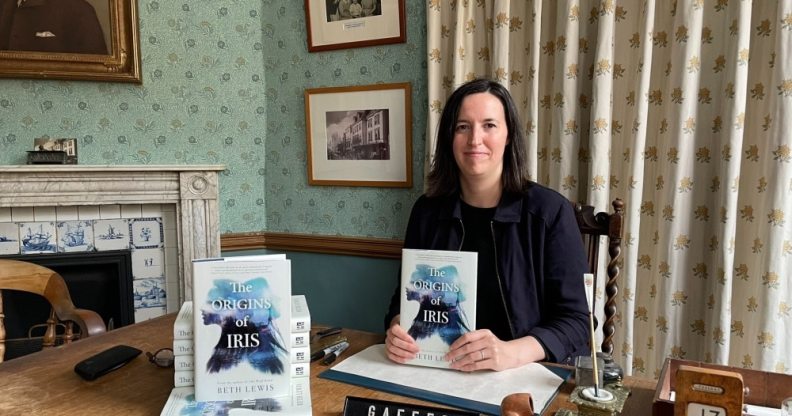Domestic abusers can be tender, loving – and queer, gripping book shows

Beth Lewis wanted to write about same-sex domestic violence because it’s a subject that many people are not aware of. (Supplied)
Author Beth Lewis spent a lot of time crafting her “tender, loving” abuser, Claude.
“She came about so naturally,” Lewis recalls. “I had her character in my head as this very seductive, manipulative woman that is high performing and gets what she wants.
“I really wanted to show her being both tender and loving, and helping her wife, Iris, and trying to get the best out of her, but also using that in a very dark way. When she finally does hit her the first time, it is quite a shock. I was quite shocked to write it.”
Domestic violence is as common in LGBTQ+ relationships as it is among straight people, studies have shown. But Lewis had noticed that it it’s rarely, if ever, talked about.
“There are so few novels, movies, TV shows – they’re just not there. It’s a real issue and it’s something that’s never really talked about,” she says.
“There are only certain LGBTQ+ stories that seem to get told and those seem to be coming-out stories – which are obviously very important in their own right.”
Lewis wanted to write a book where the main character just happened to be gay – one where their sexuality has nothing to do with the plot.
The result is The Origins of Iris. It tells the story of a woman who flees New York City and retreats into the wilderness to get away from her abusive wife. In a cabin in the woods, she comes face to face with a different – and happier – version of herself.
“The fact that she ends up in an abusive relationship has nothing to do with the fact that she’s gay, it has only anything to do with the fact that this other person is not a good person,” Lewis explains.
She was interested in the particular dynamics that might play out in a lesbian relationship when abuse occurs.
“I think with women in particular, when women fight, you get a slap, you get a scratch, you get a pinch. It’s minor, it’s small and it’s easily brushed aside in a way that it isn’t between a man and a woman because there’s a power dynamic between a man and a woman that doesn’t exist in the same way between two women.”
Beth Lewis made sure there was love in abusive relationship
Lewis was careful to make sure there was still love in the relationship so readers could understand the complexity of domestic violence – and work out why Iris doesn’t leave for so long.
“There had to be a promise of change. There had to be a nice thing that follows the bad thing. I think that’s a classic pattern that happens in an abusive relationship.
“I wanted to get into Iris’ head and be very much like, she’s got a lot of trauma in her past with her father and with her parents, so staying in a relationship became quite important for her – to prove that the love transcended what was going on because it should have done for her parents.”

The Origins of Iris is one of five titles that’s been shortlisted for the Polari Prize. (Supplied)
Trauma is central to The Origins of Iris, but it has nothing to do with her queerness. That was important to Beth Lewis – she’s tired of the publishing industry’s over-reliance on coming-out narratives when it comes to queer representation, and wants to read and write books where queer people have other things going on other than their queerness.
“In the course of a queer person’s life we come out when we’re 18 and hopefully, for the most part, it’s a positive experience – and that’s kind of it. It’s such a small part of a queer person’s life.
“My experience personally, I had a very supportive family. My mum forgot that I told her – that’s the level we got to – and I know that that is not the common experience.
“Even so, I just wanted a queer person to be able to read a queer person having a life that was not dominated by them being queer. Everything came back to that. I didn’t want the trauma in her life to be because of how she was born.”
The book has already made a mark among LGBTQ+ people – it’s one of five titles that have been shortlisted for the Polari Prize, an award that celebrates LGBTQ+ writers.
The shortlist will likely mean more people will pick up The Origins of Iris and get lost in its sprawling story. What message would Lewis like those readers to come away with?
“I would want people to come away understanding that LGBT people are just people, and that the same things that happen to straight people happen to queer people,” she says.
“We’re no different from anyone. Being queer should not define a person in my opinion. We make the same mistakes, have the same problems – we’re just like everyone else.
“Most of the feedback has been, ‘I’ve not seen this before.’ It’s mostly actually from straight people saying, ‘I had no idea this was a thing’.
“It’s this kind of forgotten and hidden aspect of LGBT life that I really wanted to shine a light on.”

